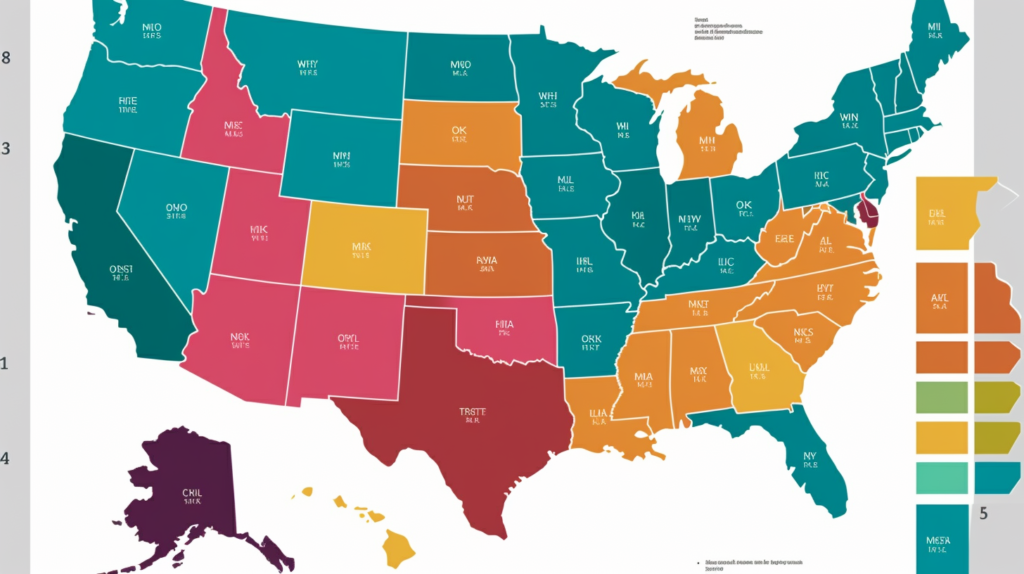Do you ever wonder if that golf cart cruising your community’s side streets even belongs there legally? Unlike regular vehicles, special titling and registration guidelines dictate where and how golf carts can transport passengers on public roadways.
But do golf carts require government-issued vehicle titles at all? Well, ispecial titling and registration guidelinest depends on certain conditional factors explored here.
Let’s dive in to examine golf cart classification differences, titling laws across states, and reasons registering your cart.
Do Golf Carts Have Titles?

It depends. Golf cart titling requirements vary considerably between different states and local jurisdictions. Some areas demand full vehicle registrations and legal titles before golf carts can operate on public roads at all.
But other states and communities allow at least limited on-street golf cart travel without needing official state-issued proof of ownership titles or formal registrations. Generally private golf course use does not necessitate titling carts either.
So golf cart owners must research applicable laws in their particular city, county and state to determine current local titling rules and qualifications for driving carts in permitted public zones.
What Is A Golf Cart?

A golf cart is defined as a small vehicle designed originally to carry two golfers and their golf clubs around a golf course. Golf carts typically have a top speed of 15-25 mph.
They run on battery power and have three or four wheels. Golf carts differ from other low speed vehicles in that they are designed specifically for off-road use on the grass and terrain of golf courses.
Low speed vehicles are street-legal vehicles that exceed typical golf cart speeds but travel under 25 mph. Low speed vehicles resemble cars or trucks and are made for on-road use.
They have safety features like seat belts, windshields, turn signals and headlights. The regulations around registration and titling often differ between true golf carts and low speed vehicles.
Titling Requirements By State

Golf cart laws related to vehicle registration and titling fluctuate substantially between states. The spectrum runs from universal mandatory golf cart titling to no titling mentions at all statewide.
Overview Of State Laws Regarding Golf Cart Registration And Titles
State laws vary widely when it comes to titling golf carts. Some states require titles for any golf cart operated on public roads. Others exempt golf carts from titling provided they meet certain special rules.
Several states do not require any kind of registration or title for golf carts at all. Determining your state and local golf cart regulations is important.
Improperly operating your golf cart without following titling laws could result in fines or impound fees.
States That Require Titles For Golf Carts Driven On Public Roads
Some states require that any golf cart driven on public roads be titled similarly to a car or motorcycle. For example Florida requires all golf cart owners to register their vehicles and obtain permanent state-issued titles if operating the carts off private property.
The owner must provide proof of insurance and pass a vehicle inspection to meet minimum safety standards. Golf cart titling laws are also mandatory for road use in states like Michigan, New Hampshire and Georgia.
Some California counties will not permit golf cart operation on streets without proof of California registration and titles.
States With Exceptions For Titling Certain Types Of Golf Carts
While some states demand golf cart titling and strict registration to drive on public roads, others provide legal exceptions. For instance in Texas golf cart titling is normally required for operation on public roadways.
But the state offers exceptions for certain smaller towns, vacation rental communities and island locations. The exempted locations may develop their own golf cart road rules instead.
Hawaii state law lets individual municipalities decide whether to require periodic golf cart inspections and administrative registration instead of formal legal vehicle titles.
Why You May Want To Title Your Golf Cart

Obtaining proper golf cart titles provides some ownership assurances and potential motoring liberties depending on your area.
Allows You To Register It And Drive Legally On Public Roads
Obtaining a legitimate state registration and title enables legal golf cart use on designated low-speed community roadways.
Properly titled golf carts can often access special retirement community roads, tourist rental areas and even certain regular public streets with speed limits under 35 mph. Checking your particular state and county rules will determine any geographic restrictions.
But for broad public road access, full legal golf cart titling and registration is generally mandatory.
Provides Proof Of Ownership In Case Of Disputes Or Theft
A registered title formally identifies the legal owner of a golf cart vehicle. It records and tracks any subsequent changes of registered ownership if you sell the golf cart.
These records help mediate any ownership arguments over used golf carts with no other purchase documentation. An official state golf cart title also helps recover stolen carts and prosecute thieves by proving your ownership rights.
Police can reference the vehicle identification number and registration data during theft investigations.
May Be Required To Insure Your Golf Cart
Most insurers will not underwrite golf cart insurance policies without state registration and proof of a legal vehicle title. The golf cart title displays crucial identification details necessary for obtaining coverage.
And driving on roads with uninsured, unregistered golf carts likely violates state financial responsibility and compulsory insurance laws anyway. The right insurance protects against liability claims if you cause injury or property damage.
So satisfying titling and registration mandates aids golf cart insurance processes.
When Titles Aren’t Necessary

Plenty of situations arise where golf cart owners need not bother with formally titling their small vehicles even when driving on certain roads.
Using Golf Carts Exclusively On Private Property Like Golf Courses
Golf carts driven solely on private golf courses do not require registered titles or state registration in any U.S. state. Golf carts were originally designed for private recreational and convenience use on golf courses or closed communities.
No public road exposure eliminates needs for titling since carts remain fully within privately-managed boundaries. But improper street usage still applies public access rules regardless of registration status.
Carefully review all municipal golf cart ordinances before crossing into any public right-of-way.
States That Don’t Require Titles Regardless Of Public Road Use
Surprisingly golf cart titling regulation in North Carolina only focuses on tax assessment and liability insurance. Carts in North Carolina currently do not need registration or titles at all for street driving.
The state merely mandates carrying minimum liability insurance when operating golf carts on public roads. Alabama golf cart laws similarly do not address titles or registration either.
Alabama simply allows local jurisdictions to set separate usage and insurance rules for neighborhood electric carts. But any state can amend golf cart statutes later so double-check current statutes for changes.
Special Considerations

Aside from broad state statutes concerning golf cart titling, an array of localized factors and insurance technicalities further impact registration requirements.
Unique Local And Community Golf Cart Laws
Beyond state vehicle codes, individual cities, towns and planned communities often issue local golf cart ordinances further restricting or allowing usage and access. For example the city of Tempe, Arizona prohibits most public golf cart driving.
But age-restricted housing projects in Tempe frequently make exceptions for internal community travel. So check with local county and municipal authorities about potentially superseding localized golf cart decrees applicable inside certain districts.
Homeowners associations inside masterplanned developments also commonly govern golf cart use rights on privatized community streets through specific covenants and restrictions.
Insuring Golf Carts Without Titles
Realistically titling a golf cart mainly assists insurance enrollment proving ownership rather than directly regulating physical street access. Golf cart insurance availability does not necessarily depend on complying with separate state title processing statutes.
Insurance agencies can still potentially insure untitled golf carts depending on specific risk circumstances and policy eligibility factors. But confirming coverage could require extra application paperwork and administrative justification when no vehicle title exists.
Rates may scale higher as well for untitled golf cart assets depending on usage classifications and carrier filing rules. Always disclose full golf cart titling status when shopping quotes.
Buying And Selling Titled Vs Non-Titled Golf Carts
When purchasing used golf carts, working equipment without any titles sells for substantially lower valuations than properly titled carts. Signed bills of sales or indemnity agreements might transfer ownership interests in untitled golf carts instead of valid registrations.
Still upon resale the next buyer typically must newly apply for current titles assuming enough public roadway travel occurs requiring mandated state registration.
Buyers should also transfer insurance simultaneously when acquiring already titled golf carts to ensure continuous coverage.
And check DMV procedures for formally updating all registration records into each buyer’s name later upon successfully completing any golf cart sales transactions.
Conclusion
In the end, titling requirements for golf carts vary widely depending on intended usage areas and locations. Carefully research regional state laws, county statutes, city ordinances, and homeowners association rules before operating any golf cart.
When in doubt, consult local DMV administrators, law enforcement, community associations, and insurers about safely navigating golf cart registration and titling processes applicable across different streets and neighborhoods.



